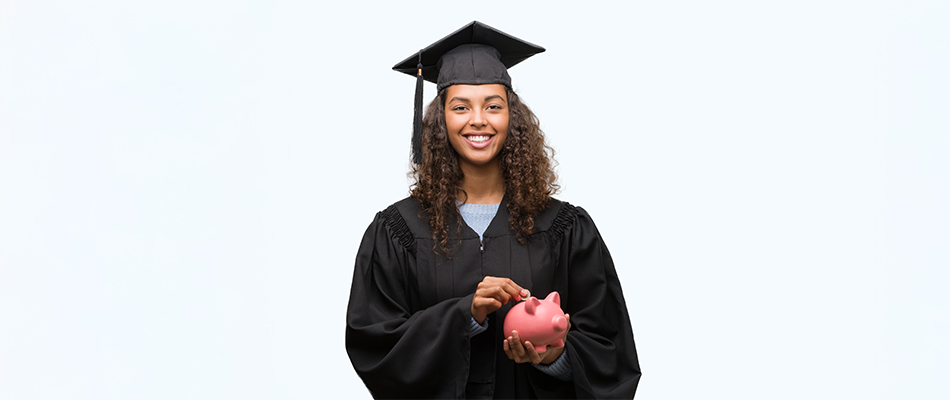So you are curious too, you want to know how much an MBA costs in South Africa; you want to know what MBA fees are and if they are truly worth it. Welcome; we’ve got all the details for you! Before we break it down, answer this sincerely: how much are you willing to invest in your life; how far are you ready to go to acquire top-class MBA education that would make you are a thought leader, astute administrator, and one who knows how to manage resources effectively?
The professional MBA programme is the ultimate management degree specifically designed for people who want to get to the top of their career, improve on their current salaries, and become an industry expert – no matter the sector they work in presently.
Is an MBA degree priced too high? The answer is simple: “if you think education is expensive, try ignorance,” so the famous saying goes.
Table of Contents
What is in a MBA Degree?
An MBA is not just another regular Master’s Degree; not in SA, not anywhere else. Conversely, an MBA is a professional certification that provides potential candidates with a comprehensive skill set that transforms them into intelligent managers of resources and astute leaders of men and women.
Whether as an aspiring entrepreneur or someone who plans to get to the highest rung on the managerial ladder, an MBA has become a minimum entry requirement into many conglomerates, retail chains, NGOs, and even in some aspects of public service.
From big banks to fund managers, retail store chains, and virtually every other industry or sector, an MBA is a desirable qualification that employers require – especially for mid-level and senior management positions. It is clear, then, that an MBA is a veritable tool, a surefire key that opens many doors both locally and internationally, placing the holder in prime position to get the best jobs out there and rise to the top of their career eventually.
Related: What is an MBA?

Is the MBA Cost Really Worth it?
Other than a doctorate which is placed on NQF-level 10 (that is the highest SAQA-recognised degree in South Africa), a professional Master of Business Administration is the most prestigious degree anyone could hope to have.
Presently, an Honours Degree holder earns an average of R297,000, about half of what an MBA graduate gets in a year. An MBA graduate’s starting salary is valued at R390,000 and rises to R560,000 after about two years in the role. Some multinational companies and big brands are known to have paid MBA grads as much as R3,000,000 annually.
Now, is the investment worth it or not? Your guess is as good as ours!
For a one-time investment of fees you pay the business school or university as well as time and effort put into studying and passing the exams, it is evident that you are set-for-life after acquiring an MBA degree.
MBA Cost
MBA cost in South Africa range between R71,000 and R276,000. At present, the top seven business schools in South Africa charge over R200,000 per slot.
Should you instead choose a school with cheaper MBA cost which you may struggle to get a job with over one that is priced high but offers better opportunities?
The devil is in the details!
How Much MBA in South Africa Cost for Last Academic Year?
MBA in South Africa Cost vary significantly depending on the institution. Below are some examples:
- Henley Business School: R249,500
- Milpark Business School: R226,530
- Stellenbosch Business School: R225,950
- Wits Business School: R221,000
- Gordon Institute of Business Science (GIBS): R214,000
- University of Cape Town Graduate School of Business: R210,000
Costs generally range between R71,000 and R276,000, with some institutions offering more affordable programs.
The Secret is in the School Name, Course Content, and Alumni
It is no secret that top employers from the biggest brands and business chains in South Africa take into consideration the source from which candidates get their MBA degrees. In other words, an MBA degree is evaluated based on three major factors (besides the intellectual acumen, work experience, and other such factors the individual is bringing to the interview room).
The three crucial factors are the name of the school that awarded the degree, the contents of their courses, and the combined power/influence of past students who hold a similar certificate from the same school. Broken down, it means that the reputation of the faculty combined with the kind of accreditations the school has as well as the strength of its course contents all combine to determine how reputable the school is.
That, in extension, broadly points to where the past students are working/or have worked with the same kind of MBA certificate. How these metrics are measured may not be the same in every company, but the result is mostly the same – MBA degrees from more reputable schools get the best jobs.
Little wonder most people instead choose high-quality MBA certificates awarded by renowned business schools that boast robust alumni spread nicely in the society.
Read more: What are the Requirements for Getting an MBA?
Can I Access Loans to Cover my MBA Cost in SA?
Many business schools around the world offer all kinds of student aids and loans for potential candidates. While participating banks finance most of these aids, private employers and government departments also provide bursaries to their employers who meet specific criteria.
For individual MBA student loans, a good credit rating and consistent monthly surplus are minimum factors (among others) that banks require before such loans they grant such student aid. On the other hand, business schools that provide student aid rely on their credit committees to determine the creditworthiness of individuals and how much student loan they can grant such an individual.

Explore Our Other Programmes
Conclusion
How much do you think an MBA is worth; are MBA costs really worth the trouble? For a business school that leads in Entrepreneurship, Conscious Leadership, Ethics and Corporate Governance, as well as the use of Information Technology, the cost seems worth it, after all.
Also, consider the spread of its alumni and the positions they hold in the corporate world and public service. Such due diligence would present you with a clear choice on which school to choose.
Now that you have an idea of MBA cost in South Africa, Click here to apply for the best all-round MBA degree awarded by South Africa’s top business school that holds multiple accreditations, including SAQA and NQF-level 9 recognition.
FAQs
How much does an MBA cost in South Africa?
MBA costs in South Africa range between R71,000 and R276,000, depending on the institution.
Is an MBA worth the investment?
Yes, the potential salary boost and career advancement opportunities make an MBA a valuable investment.
What are the benefits of earning an MBA?
An MBA provides a comprehensive skill set for management, leadership, and resource management, and is often required for mid to senior-level positions.
What is the average starting salary for MBA graduates in South Africa?
MBA graduates in South Africa typically start with a salary around R390,000, rising to R560,000 after two years.
What is the highest salary paid to MBA graduates in South Africa?
Some multinational companies pay MBA graduates as much as R3,000,000 annually.
How do employers evaluate MBA degrees?
Employers consider the school’s reputation, course content, and the strength of the alumni network when evaluating MBA degrees.
Which business schools in South Africa have the highest MBA fees?
Henley Business School (R249,500), Milpark Business School (R226,530), and Stellenbosch Business School (R225,950) are among the schools with the highest MBA fees.
Can I get a loan to cover MBA costs in South Africa?
Yes, many business schools and banks offer student loans, though creditworthiness and consistent income are key factors in approval.
What is the significance of the school’s name and alumni network for MBA graduates?
A reputable school with a strong alumni network increases job prospects and enhances the value of the MBA degree.
What are the minimum academic requirements for an MBA in South Africa?
Most MBA programs require a relevant undergraduate degree, work experience, and meeting the specific criteria set by the business school.







